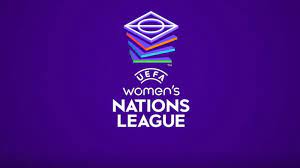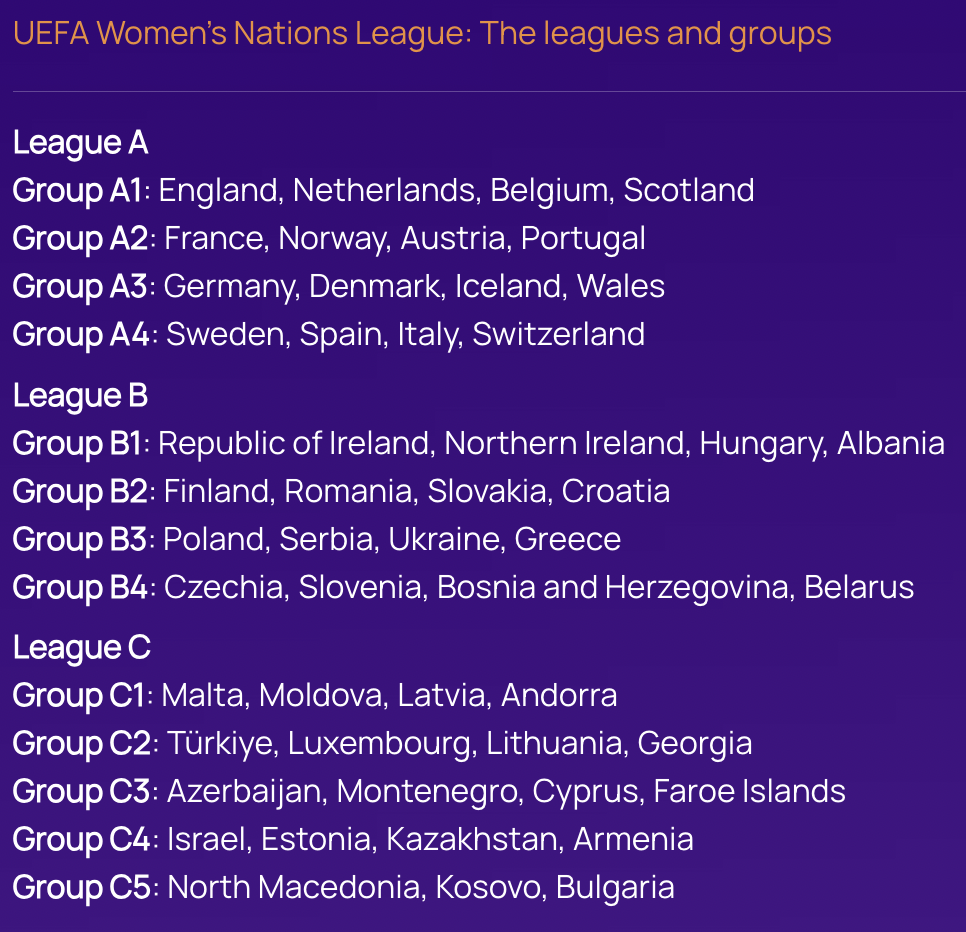September 21 – UEFA’s inaugural Nations League will kick off a new era for European women’s football on Friday with more competitive matches, two tickets for the Olympic Games at stake, and an impact on qualifying for Euro 2025.
The 2023 Women’s World Cup qualifiers in Europe had so many mismatches, including England’s 20-0 annihilation of Latvia, that the competitive balance as well as the game’s development and image suffered. To address the lopsided scorelines Uefa introduced the Women’s Nations League.
The format of the three-league tournament is not so different from the men’s Nations League with teams divided into the leagues based on UEFA’s coefficient rankings.
The tournament will serve as a pathway to the Olympic Games with the two finalists, following a final-four competition, qualifying for Paris 2024. Previously, the two highest European finishers in the World Cup – England and Spain – would have joined hosts France in the Olympic tournament.
The teams that finish in the top two in each group will remain in League A for the European qualifiers, which start in spring 2024 and follow the same format as the Nations League.
The Nations League will have promotion and relegation between the leagues which will allow weaker teams to progress and play stronger opposition.
World Cup finalists England will play Scotland, Belgium and the Netherlands in Group A1. They kick off their campaign against their neighbours.
In Leuven, Belgium host the Netherlands in a local derby. France face Norway, Austria and Portugal in Group A2 while Germany, on the back of a disappointing World Cup, play Denmark, Iceland and Wales in Group A3.
World champions Spain will face Sweden, Italy and Switzerland in Group A4. The Spanish participation was in doubt following their women’s world cup winners player dispute with the RFEF, but the governing body’s promise of ‘profound changes’ swayed the players to end their national team boycott.
In Group B4, Slovenia, the home team of UEFA president Aleksander Ceferin, will kick off their campaign against the Czech Republic. They also face Bosnia & Herzegovina and Belarus in the group. Their build-up has also been marred by a major dispute with the Slovenian FA (NZS) as well as coaching staff. Manager Borut Jarc was dismissed following allegations of sexism and misogyny, which prompted the players to reconsider a potential boycott of the national team.
The tournament can serve as a catalyst for change in more ways than one.
Contact the writer of this story at moc.l1751315288labto1751315288ofdlr1751315288owedi1751315288sni@i1751315288tnuk.1751315288ardni1751315288mas1751315288


